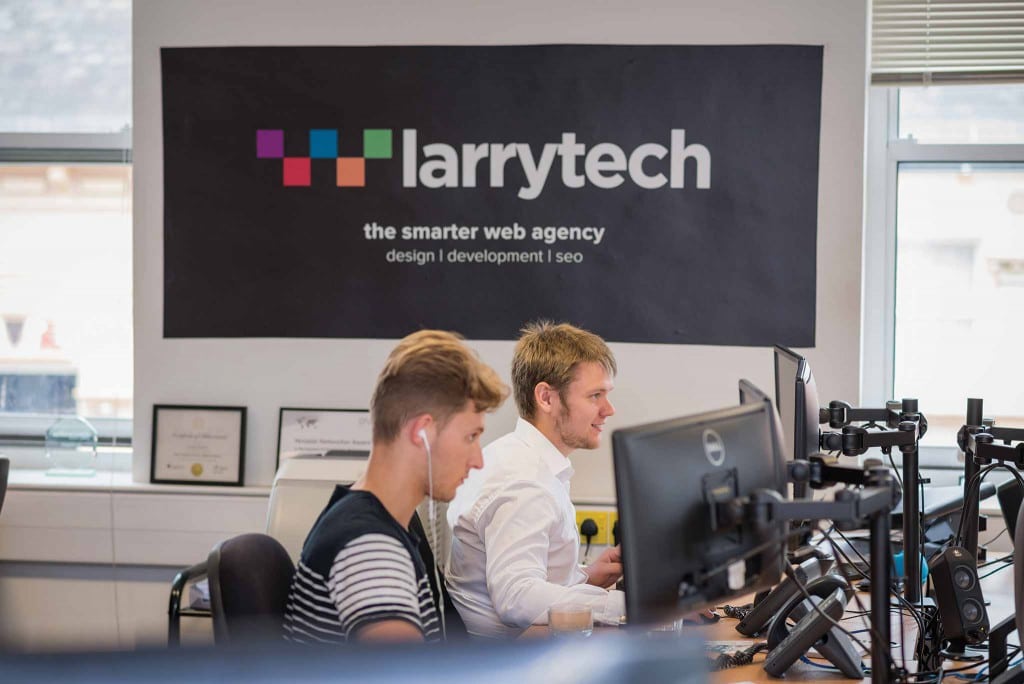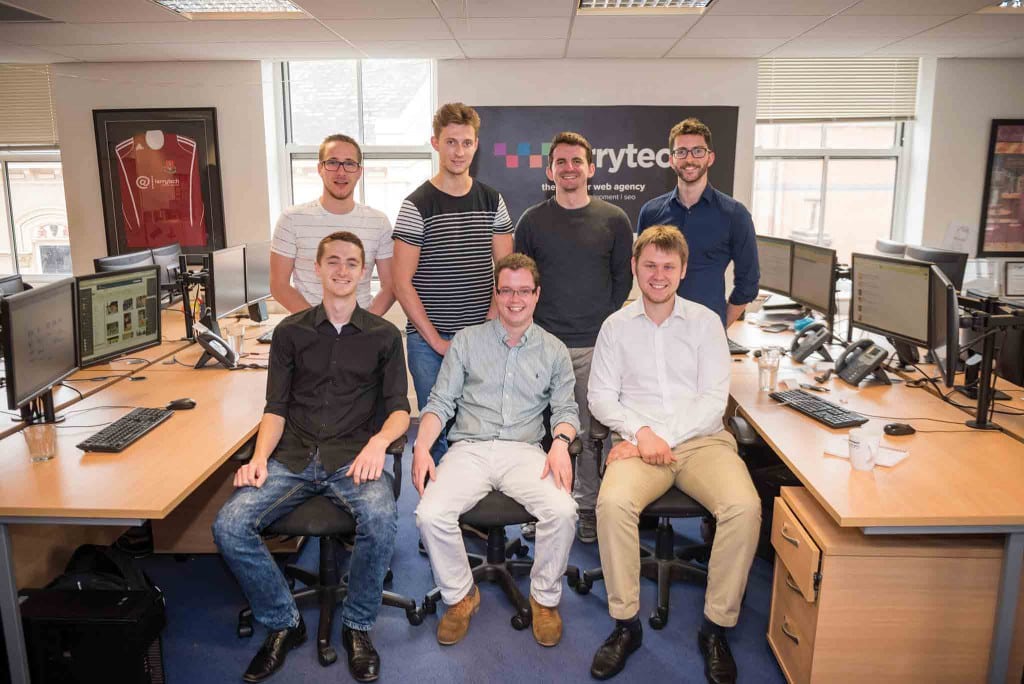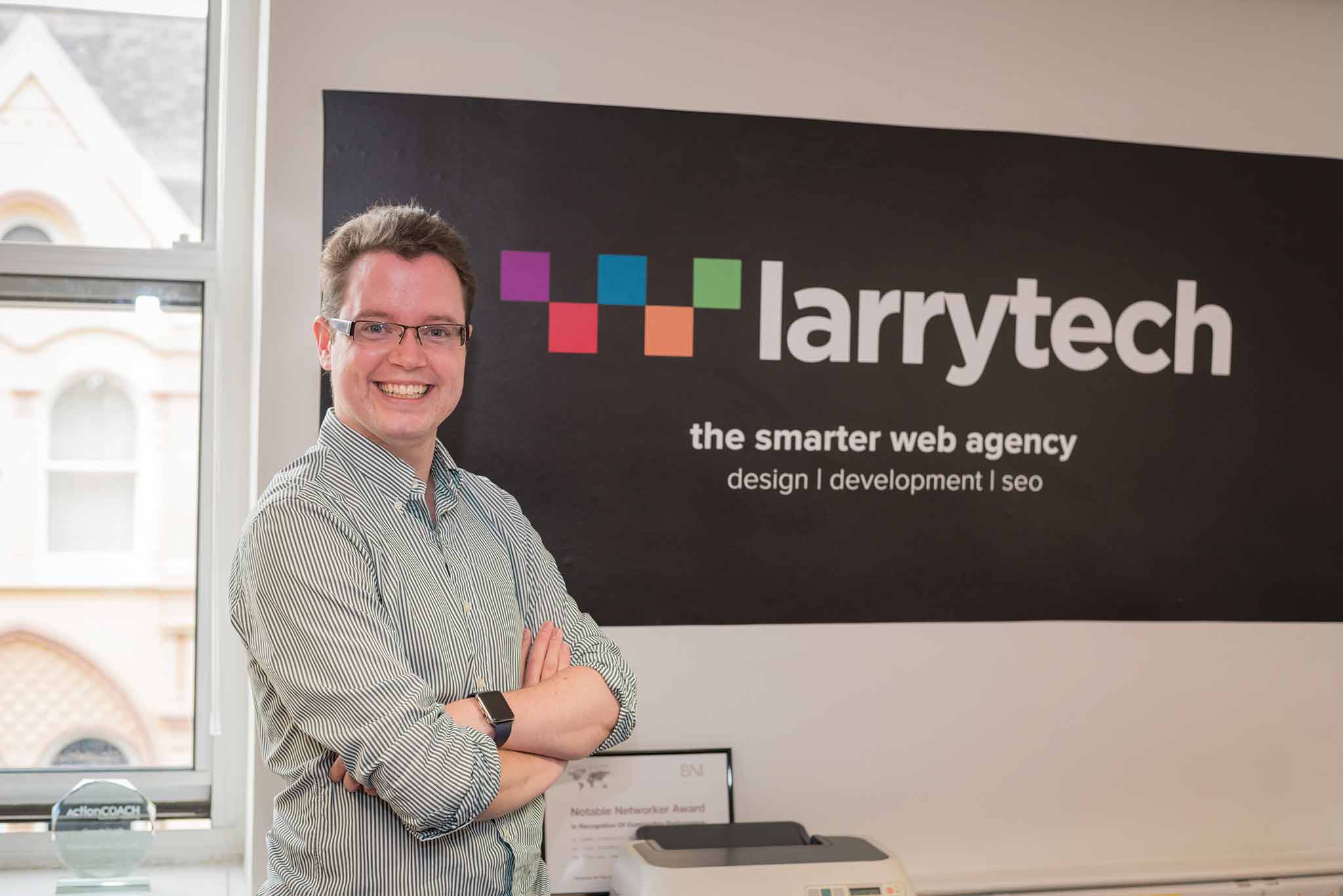Not many people will run their own business, but even fewer can say that at the age of 29 they have been heading a company for more than half of their life.
Having set up Larrytech at the age of 14, Larry Hardcastle has more experience running a company than a lot of people twice his age.
Larrytech designs, develops, hosts, supports and grows the profile of bespoke websites for a broad variety of clients.
The company won the Creative Business of the Year category at the inaugural Royal Tunbridge Wells Business Awards and has grown from a small operation set up to help friends and family into a company of 13 people with 600 clients and a projected turnover this year of close to £380,000.
The fact that Mr Hardcastle started the business at such a young age has raised some eyebrows in the past.
“Because I have been doing this for so long most people are completely used to it, but it was a bit strange early on,” he said.
“It is weird to think that during the course of my life so far, I have been doing Larrytech longer than I have not been doing it.
“Even now when I say I have been running it for 15 years some people look at me and ask if I am really aged 40.”
It was through his grandfather that Mr Hardcastle first realised the possibilities offered by running an online business.
The owner of a small local record label, his grandfather believed there could be potential for the acts he promoted to reach a larger audience if pushed online.
“The internet was very different back then,” explained the former Skinners’ pupil. “We set up a simple site in order to see if there was a market for some of the recordings.
“We ended up getting interest and orders from the US, Australia and all over the place. I became really interested in the internet and started to do bits and pieces for friends and family.”

He settled on the name Larrytech because as a teenager he thought ‘it sounded like a rather good idea,’ adding: “This led to an awkward period where everyone would want to speak to ‘Larry’ and were disappointed if they didn’t get to speak to me.
“Now we are at the point where people seem quite amused to discover that there actually is someone called Larry at Larrytech.”
It was not long before word of mouth meant Mr Hardcastle was providing his services to clients beyond his friends and family, which led him to register the company in 2003.
The business remained a one-man operation for several years while Mr Hardcastle studied business management at King’s College, London – a subject he thought was complementary to his IT skills set.
He likens the experience of running Larrytech during his studies, as having a part-time job but with more flexibility, adding it was only during exams when it became ‘quite challenging’.
Around eight years ago, with a growing list of clients meaning he could no longer rely solely on contractors for support, Mr Hardcastle took on James Blacklee, an old school friend, as his first employee.
“We were both interested in web stuff and although he had no web background at that point he was working locally, so I said why not give it a go? He has been here ever since and is our creative director.”
Mr Blacklee was soon followed by another school friend, Doug Rubashow, who now heads sales at the company.
“A lot of people advise against working with friends but it has been very good for us as we have complementary skills and see things from different angles,” said Mr Hardcastle.

The first real signs of running a profitable company appeared while he was still at university, although it was after leaving full-time education that he had to make the decision whether to fully commit.
“When I graduated I had to decide whether to move into a job or give the web a go. It was crunch time for me, but I decided I had been doing it for such a long time that it was worth a shot.”
He said the hardest period for his business so far was during the ‘sting’ from the recession.
“The height of the recession was not too bad, but there was a sting during the period following the immediate crisis due to the type of companies we work with.
“At the moment we have leads coming in left, right and centre but there certainly have been periods where we were wondering where the next project would come from.
“It is particularly hard when clients struggle and go out of business because we cannot predict that.
“On the other hand it is really nice to watch when they successfully grow.”
Over time, the company has gone from offering a broad range of IT-related services to narrowing things down to what Mr Hardcastle thinks the firm does best. It’s encapsulated in the company’s slogan: Design, development, SEO (search engine optimisation).
“We have kept it very simple and we have really focused on delivering quality of service.
“With web you can go and build your own site for two pounds a month and do it all yourself. We are not in that market; we are positioned at the high end in order to offer the support people need to actually grow their businesses.”
Mr Hardcastle said he no longer gets involved in any of the design and development itself, admitting that what his staff can achieve is ‘infinitely greater’ than what he could deliver.
Instead, he provides oversight of the company’s operations and the strategic vision for where he believes the business should be heading.
Competition within the creative and IT sectors is high, although Mr Hardcastle believes that at the moment there is enough work to satisfy most businesses.
He also believes Tunbridge Wells has an extremely cohesive creative sector with a diverse range of skills, which means potential rivals can also be collaborators.
“There is a lot of specialisation in this town. Yoyo Design for example; they would be looking for a very different type of project to us so in the past they have referred people to us and we referred people them.
“It is a very collaborative local business environment and there’s a lot of sharing of ideas.
“We have done quite a bit of creative networking. We have sat down and chatted with people from other agencies and made some amazing connections.
“Of course, it’s always nice if you go head-to-head to win a project but it is only a very minor part of doing business. It is a very healthy style of competition.”








